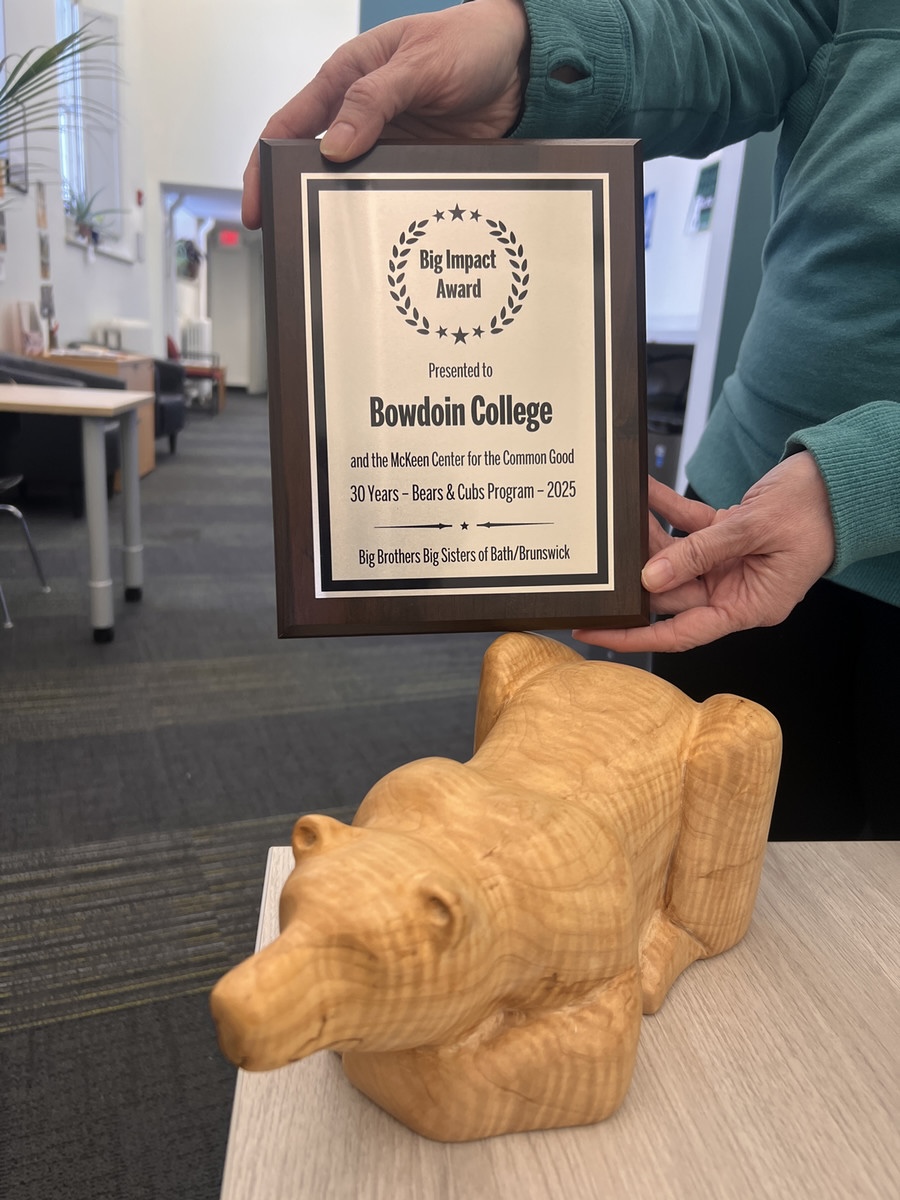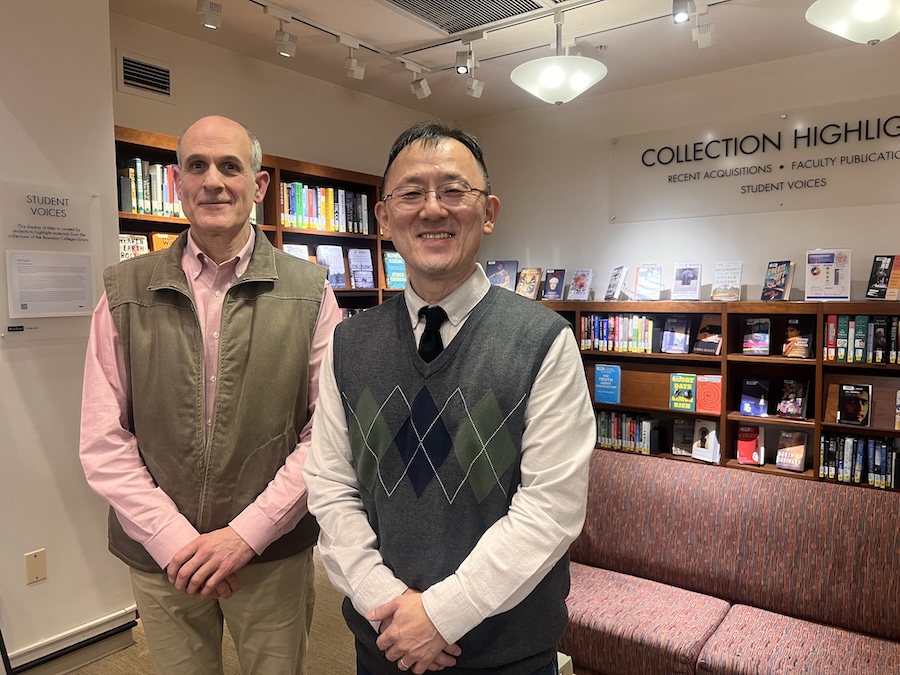'Morality in Politics' Event Brings Together Students, Community Members
By Philip Kiefer '18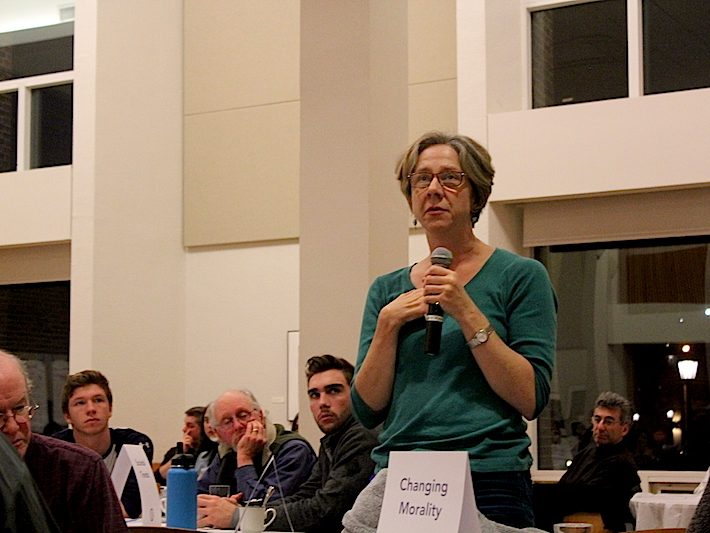
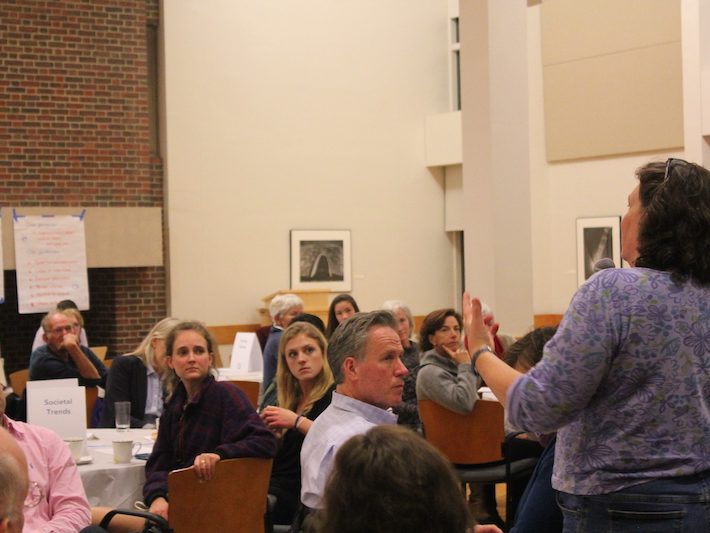
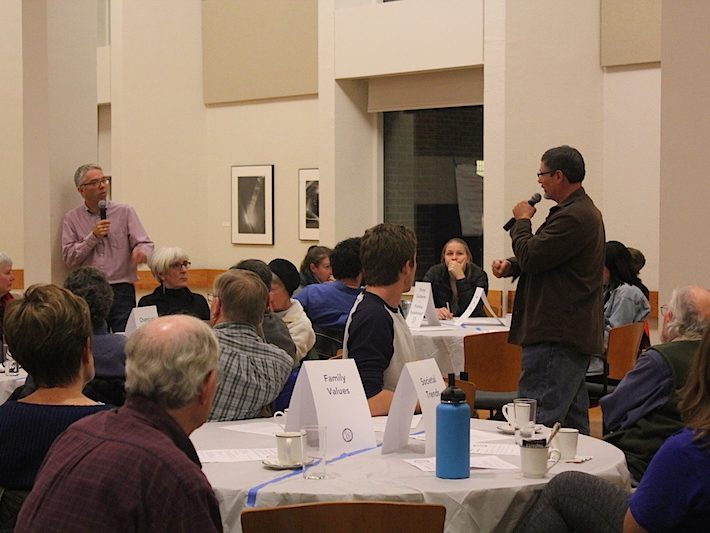
The most recent “What Matters” discussion, on morality in politics, brought locals together with Bowdoin students, staff, and faculty to talk about questions such as whether politicians should separate their personal morals from their political work, or whether our moral standards have slipped over time.
“What Matters” is a regular McKeen Center program that invites people to discuss a current and complex topic in the news. McKeen Center Associate Director Tom Ancona, who organizes the series, said the events offer a chance for people to “talk about things we disagree on.”
The McKeen Center staff settled on the topic of morality in politics because it is a subject they thought that would be relevant and intriguing to both young and old alike, and would draw out a range of opinions, said Ancona. At the same time, it wouldn’t draw a distinct line between generations. “So there wouldn’t be a clear divide between students and community members,” he added.
Additionally, the topic gets at the crux of what so often divides people. “So many people’s politics is based on morality, and that morality is based on one’s upbringing, or parents, or sense of social justice,” Ancona said. “We got to hear different perspectives from many people in the room.”
To gather a diverse group for the discussion, Ancona reached out to several student organizations with unrelated missions to co-sponsor the evening. “We try to find a college house, two sports teams, and another student group or two so that new people are participating in the conversation every time,” he said.
Tuesday night’s event, which attracted about sixty community members and thirty students, was held with the support of the Office of Religious and Spiritual Life, Reed House, Hillel, the Catholic Student Union, and the baseball and softball teams. A student group performed live music.
Dean of Student Affairs Tim Foster, who attended the event in Daggett Lounge, said he’s hoping to see more events like this one in the future. “Our students are so smart but they don’t yet have the wisdom that comes from living life and having a multitude of experiences to draw from,” he said. “The magic for me was the quality of the conversation. People spanning generations, sat together around the table, really listened to one another, and shared their different perspectives and viewpoints in an open and honest way.”
The discussion was facilitated by Craig Freshly, a professional discussion facilitator and Brunswick residents who runs a local nonprofit called Make Shift Coffee House. Following last year’s presidential election, Freshley launched Make Shift Coffee House when he realized how rarely people cross the political divide to talk with and learn from one another.
“I asked myself, what can I do?” he remembered. So he turned to what he knows how to do: getting people to speak to one other. “I rented a room at a library and held a coffeehouse, just so people could talk.’”
Makeshift Coffeehouse has held eight discussions since November, in public libraries, churches, and schools around Maine. “It’s caught fire. I volunteer my time, so I need help expanding the organization,” said Freshley. His work now involves building the organization so that it can grow into other states and run without him personally organizing each meeting.
Freshley began the Bowdoin discussion by citing studies from the Pew Research Center on the state of political polarization. “One study says that political difference has reached record levels. And it’s not just that people disagree. We don’t like each other.” At this, a collective “mm hmm” bubbled up from the crowd.
“These studies say that we have an increasing deep distaste for the other side. So tonight we’re going to explore some differences for the explicit purpose of understanding each other’s political views,” he continued. “One of the hallmarks of Make Shift Coffee House is that we’re all experts. Another is that we’re okay with disagreements. We’re not trying to convince one another or even agree. It’s okay if you walk out the door with the same views you walked in with.”
He added, “I’ve found in my work that most conflicts are resolved with the words, ‘Oh, I didn’t know that.’ But when we don’t understand each other, we fill in the blanks and assume that everyone else has bad intentions.”
The discussion took place at first in small groups seated at round tables, and then among the entire audience as Freshley passed around microphones. At the tables, participants engaged each other on specific topics, like the meaning and role of family values in society, or the way morality has changed over time. In the larger group, Freshley posed specific questions to volunteers, and then sought responses and debate from other members of the audience.
But while Freshley’s calm but insistent prodding forced speakers to disagree, many members of the audience were wary of overtly challenging one another. At one of the table discussions, one man began to comment on immigration before his wife asked him to drop the subject.
Another man picked up the thread of debate. “But these people are fleeing from persecution and violence at home,” he said.
“Yeah, but they’ve always been doing that…” the first trailed off. They both looked down at the table quietly, and then someone else changed the subject.
While this exchange demonstrated the difficulty for well-mannered people to actually engage in debate, Ancona said that overall, he thought the night was successful. Afterwards, students told him they enjoyed hearing from older people in the community, and older people said it was a pleasure to get a chance to interact with Bowdoin students. “It really reflected well on the community and on Bowdoin,” Ancona said.

